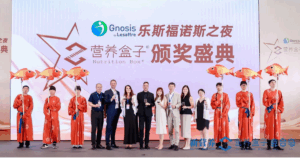
Vitamin K2 featured in new CV calcification paper, supported by NattoPharma, published in Euro Journal of Preventive Cardiology.
The European Journal of Preventive Cardiology has published a review paper examining the link between micro-calcification and atherosclerosis, focusing on cardiovascular imaging techniques and evaluating the concept of vitamin K supplementation to preserve cardiovascular health. The review paper, the result of the INTRICARE grant awarded to ex-NattoPharma’s International Research Network by the European Union within the Horizon 2020 Marie Skłodowska-Curie research and innovation program, is another strong piece of evidence identifying vitamin K2 as an essential cardiovascular nutrient.
The authors of “Locking and loading the bullet against micro-calcification”[1], identified the most suitable technique for detecting micro-calcification and assessed state-of-the-art meta-analysis and clinical studies to identify possible treatment options and evaluate the concept of vitamin K supplementation to preserve vascular health. “Despite recent medical advances, cardiovascular disease remains the leading cause of death worldwide,” says Prof. Schurgers, Professor of Biochemistry of Vascular Calcification and Vice Chair of Biochemistry at the Cardiovascular Research Institute Maastricht (CARIM), Maastricht University. “Our exhaustive, structured PubMed search showed that 18F-socium fluoride (18F-NaF) PET is the most suitable technique for detecting active micro-calcification, a hallmark of atherosclerosis.”
Presenting the pros and cons of available treatments, “vitamin K supplementation should be considered as a possible safe and cost-effective option to inhibit vascular (micro)-calcification,” the paper concludes.
An important nutrient for cardiovascular health
The paper is significant because it adds to the growing body of evidence substantiating vitamin K2 as an essential cardiovascular support nutrient, according to ex-NattoPharma Chief Medical Officer Dr. Hogne Vik.
“There are some who view atherosclerosis as an age-related condition – that calcification simply builds up over time. Ex-NattoPharma contends that this condition is not simply age-related; rather, that atherosclerosis is the product of a vitamin deficiency: vitamin K2,” says Dr. Vik. “Matrix Gla Protein (MGP) is the most potent known inhibitor of vascular calcification to date. MGP is a K-dependent protein already present in the body, but it needs adequate Vitamin K2 in order to be activated to perform its function. Our three-year clinical study[2] of healthy postmenopausal women showed that 180mcg of MenaQ7 Vitamin K2 as MK-7 daily resulted in not only cessation, but remarkably regression in arterial stiffness (i.e., their arteries became more flexible) in the MenaQ7 group through activation of MGP.”
It is important to note that no other compound to date has been able to produce the results experienced with a daily nutritional dose of Vitamin K2 as MK-7 (as MenaQ7®),” Dr. Vik adds. “This study has served as a platform for other clinical trials investigating K2 in patient populations with existing coronary artery calcification, aortic valve calcification, and peripheral artery calcification, and these studies are being driven by the medical community.”
“The work conducted in collaboration with ex-NattoPharma under the INTRICARE grant has not only helped us shine a light on the most reliable technique for detecting active micro-calcification, providing some hope in getting ahead of compromised cardiovascular health, but also the science supporting various therapy options, including supplementation,” says Prof. Schurgers. “Essentially, this work will help drive awareness how we can ‘lock in’ on the effects of vascular calcification (18F-NaF PET) and ‘load’ a suitable, cost-effective bullet (vitamin K).”
The review paper is the result of the INTRICARE (grant agreement No 722609) grant funded by the European Union within the Horizon 2020 Marie Skłodowska-Curie research and innovation program, awarded to ex-NattoPharma’s International Research Network to train a total of 26 Early Stage Researchers (ESRs) focusing on harnessing endogenous mechanisms for health and the effect of vitamin K to hold or regress microcalcification and subsequent cardiovascular disease.
References:
1 Florea A, Morgenroth A, Bucerius J, Schurgers LJ, Mottaghy FM. Locking and loading the bullet against micro-calcification. Euro J Prev Cardiology (2020) 0(00) 1-8. doi:10.1177/2047487320911138
2 Knapen MH, Braam LA, Drummen NE, Bekers O, Hoeks AP, Vermeer C. Menaquinone-7 supplementation improves arterial stiffness in healthy postmenopausal women. A double-blind randomised clinical trial. Thromb Haemost. 2015 May;113(5):1135-44. Doi: 10.1160/TH14-08-0675.
PR: NattoPharma Research Network Receives 4M€ Research Grant
DISCOVER ALL OUR LATEST NEWS

Webinar Rethinking Women’s Health 24 June 2025
Women’s health is complex, constantly evolving, and a broader perspective is long overdue, one that goes beyond reproductive care to include mental health, chronic conditions, and the unique ways diseases manifest in women.

Gnosis by Lesaffre Highlights Quatrefolic® at New Nutrition Forum in Hangzhou, China
Gnosis by Lesaffre was proud to serve as the Title Sponsor of the New Nutrition Forum held in Hangzhou on June 6, 2025. As part of the event’s scientific agenda, we hosted an engaging seminar focused on Quatrefolic®, the 4th generation active folate.

Biotic Live: A Successful First Edition Exploring the Power of Probiotic Yeasts
Gnosis by Lesaffre recently hosted the first edition of Biotic Live, a unique event dedicated to exploring the potential of probiotic yeasts. This live session brought together leading experts to present the latest scientific insights and real-world applications of live yeasts in human health.


